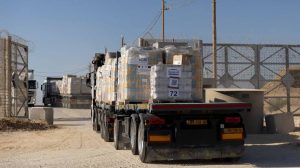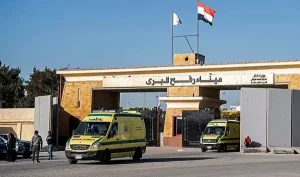
submarine
HMAS Rankin " width="300" height="262" class="size-medium wp-image-69097" /> Australian submarine HMAS RankinSydney, 28 Muharram 1437/10 November 2015 (MINA) – Spies from both China and Russia have tried to hack into German, French and Japanese plans to build Australia‘s future submarines, according to a media report Monday.
The hacking attempts were aimed at three prospective builders for Australia‘s 20-billion-Australian-dollar (14-billion-US-dollar) submarine fleet contract, the Australian newspaper reported.
The companies – ThyssenKrupp Marine Systems in Germany, DCNS in France and the Japanese government – hold highly sensitive information about the Australian Navy‘s technical requirements for its new generation of non-nuclear submarines.
The three bidders have been forced to rely on hand delivery of sensitive information and the Australian government has examined cyber-security with each of the foreign bidders, Mi’raj Islamic News Agency (MINA) quoted DPA as reporting.
Also Read: 86 Indonesians Detained in Cambodia After Escaping Online Scam Syndicate
“We have about 30 to 40 (hacking) attempts per night, that‘s what our IT people say,” Manfred Klein, campaign manager of ThyssenKrupp Marine Systems in Kiel, told the newspaper.
John White, chairman of the German group in Australia, told the newspaper the attempted espionage was to be expected.
“They‘re trying to get into everyone‘s communications,” White said. “Espionage and breaches of security … you just assume it is happening. Everybody is in that game. It‘s a space that people play in. We don‘t suspect anyone, we suspect everybody.”
The newspaper said the bidders would not say on the record where the hacking attempts were coming from, but sources said privately it was from China and Russia.
Also Read: Pakistan, Afghanistan Agree to 48-Hour Border Ceasefire after Deadly Clashes
Bids for the Australian submarine contract are due by November 30 and the government is expected to pick a winner in the first half of 2016.
The contract for up to 12 submarines will also include an ongoing 30-billion-Australian-dollar maintenance deal. All three bidders have said they will build the submarines in Australia.
The contract for up to 12 sub. (T/R07/R01)
Mi’raj Islamic News Agency (MINA)
Also Read: Afghan FM: Afghanistan Has Good Relations with All Neighbors, Except One


















![French President Emmanuel Macron in Berlin, Germany on March 15, 2024 [Halil Sağırkaya – Anadolu Agency]](https://en.minanews.net/wp-content/uploads/2024/10/Screenshot_2024-10-22-20-57-45-59_40deb401b9ffe8e1df2f1cc5ba480b12-300x193.jpg)
















 Mina Indonesia
Mina Indonesia Mina Arabic
Mina Arabic